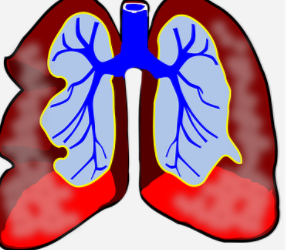Asthma is a chronic and prolonged lung disease that flames and makes the airways narrow leading to spats of coughing, wheezing characterized by whistling and squeaking sound, chest tightness and shortness of breath. An asthmatic person facing these symptoms could be said to have an asthma attack or asthma flare-up.
Severe Asthma

Whereas an asthma diagnosis symptoms could get better with time on right medication and correct treatment, severe asthma symptoms do not get better even when usual medicines are taken regularly. Few theories have been advanced on the causes of severe asthma some of which include:
- Airways inflammation caused by chemicals that cannot be blocked or controlled by current medications
- Inflammations on the airways triggered by high levels of particular white blood cells medically referred to as an eosinophil.
- Extremely inflamed airways for usual medication to take effect.
Age
There is no age limit on who gets severe Asthma.Asthma can develop to be severe overtime or can be triggered suddenly by factors such as Pneumonia and hormonal changes. A diagnosis of severe asthma is made on those with an already asthma diagnosis, and it could be right away if prior symptoms were not diagnosed earlier. It is important to note that no case of severe asthma has been diagnosed out of the blues but rather there must have been an undetected or undiagnosed condition of asthma at an earlier stage. Regular checkups could go a long way in detecting such issues and appropriate action plan administered by your general practitioner.
Medication
There are and has been special medicines for control and treatment of asthma conditions all along. Scientific research is also underway to discover and identify more treatment of the same. There has been new treatment also unveiled targeting specific subtypes of asthma. For example, the Xolair medicine that targets allergic kind of asthma and mepolizumab targeting the white blood cells induced asthma attacks. Steriods have also been used for certain patients in controlling asthma attacks of course with proper general practitioners guidance and watchful eyes.
Long-term effects

Severe asthma has been linked to longterm effects like lung damage commonly caused by what is referred in the medical terms as airway remodeling. This is where the airways become thicker over time meaning the airways themselves narrowing further thus leading to extensive difficulty in breathing. This condition has no specific cause identified yet, but it has been associated with long-term exposure to pollutants in the air like tobacco smoking and other air-related pollutants. Patients are advised to avoid identified triggers at all cost.
Note:
It is important to underline that there are no specific treatments that work for everyone diagnosed with severe asthma or asthma for that matter. Thus, patients need extra special care and getting the treatment at all times.

